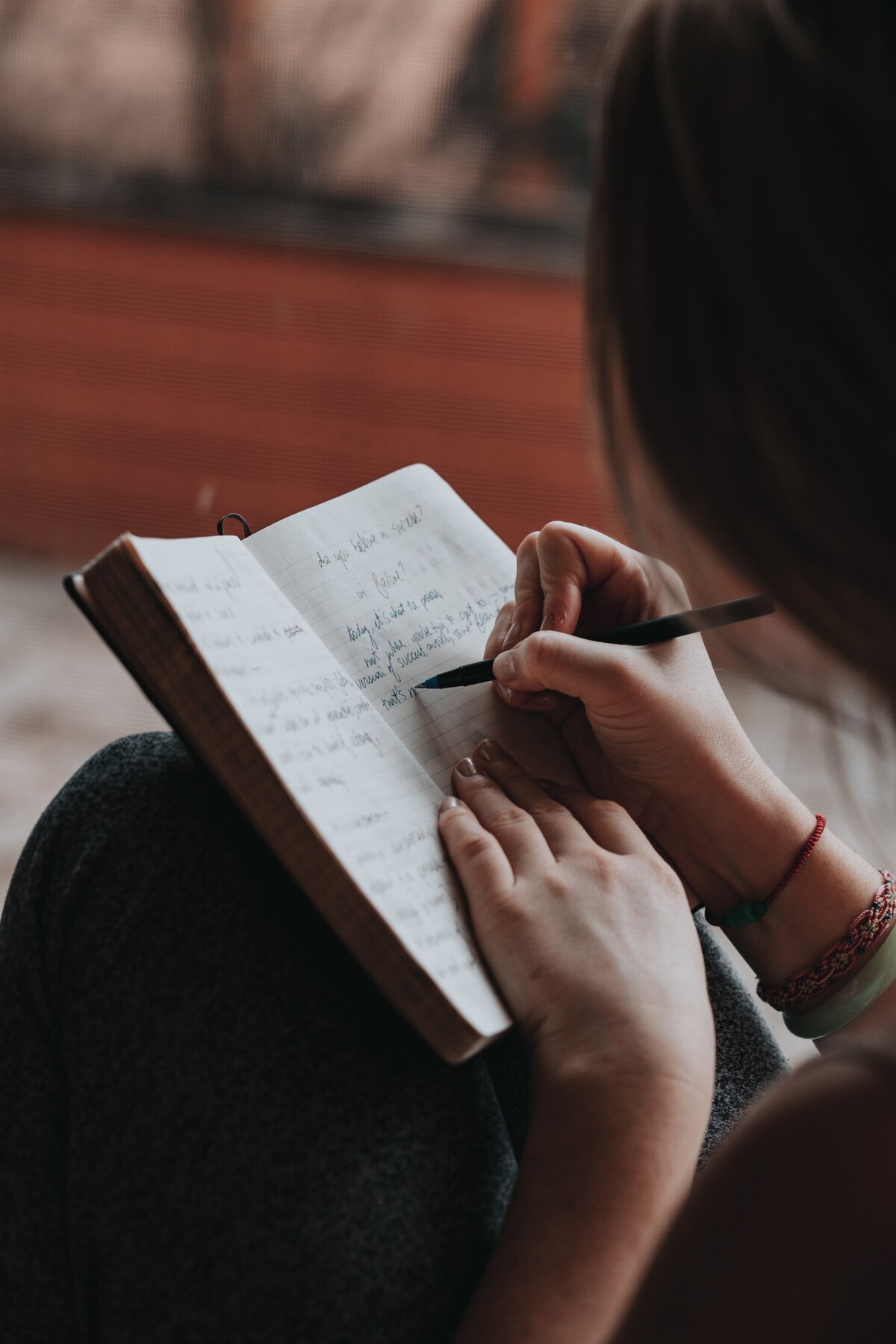 Ozempic can cause vision loss. A new study has shown a link between the drug and eye problems
Ozempic can cause vision loss. A new study has shown a link between the drug and eye problems
Ozempic can cause vision loss. A new study has shown a link between the drug and eye problems
Ozempic can cause vision loss. A new study has shown a link between the drug and eye problems
When Sleep Alone Doesn't Do The Job. The 7 Types of Resting That Everyone Needs
What are some ways to rest better, gain and retain energy? We'll show you 7 ways to relax on a daily basis that will make you feel better.
If problems persis, please contact administrator.

The offices were filled with indifferent faces, eyes of the workers overflowing with fatigue. Typical Monday morning, the vibe of which drags on through the working week until it very slowly reaches Friday afternoon. One second at a time. Fingers tap on keyboards relentlessly with a desire for some time off. Scenes resembling a novel by dystopian authors, quite honestly. Sounds familiar? Sit back for a moment and think about how do your school / work days usually go. Even your off days at home when you have nothing to do.
How many times did this burning question cross your mind: "Why am I so freaking tired?" Lack of sleep would be a simple answer, but what if you get exactly as much as you need, and the energy still falls behind. Well, maybe you have trouble distinguishing between what sleep and rest. Although regular alternation of REM and non-REM phases during bedtime is important, sometimes "just" sleeping simply doesn't cut it.
According to Dr. Saundra Dalton-Smith, the key to gaining enough life energy to paint gray work weeks with bright colors is understanding that there's seven types of rest and it's extremely important to incorporate each one of them into your life. We will go through all of them today and include tips on how you can introduce them into your daily routing. That way, you can stay productive and have good physical and mental health at the same time.
1. Physical rest
The absolute essential that we all should get enough of is physical rest, which you've probably heard of before. Physical rest itself consists of two types that need to be combined as suited. If you spend eight hours a day at work, where you need to use every muscle in your body, it's probably obvious that spending another two hours doing intense exercise is a bit of a dead end street.

It pays to take turns between the two kinds of physical rest. During the day, it's recommended to combine passive physical rest, which may include sleep (including naps), or simple lounging on the couch. Saundra then advises to include active rest in your life based on how demanding your life is. If your working days are more physically demanding, just do some stretching for a few minutes or get a pleasant massage instead.
2. Mental rest
Let's do a quick test. How many times did it happen to you that you were rolling around in your warm bed, overwhelmed with thoughts - memories of past vacations, unfinished assignments at work, school assignments that were supposed to be turned in two days ago? If you've found yourself in the above mentioned situation recently, it's quite possible that you aren't getting the amount of mental rest you require.

Mental rest needs to be integrated on a daily basis. Whether at work or school, it's recommended to rest every two hours in small doses so that you have enough energy at the end of the day. Put your tasks aside for a while and have a short breathing exercise or a meditation. Or just look out the window at how it rains, snows or shines. At the same time, Saundra recommends having a notebook by the bed, in which, if you can't sleep, you'll briefly jot down what's going on in your head so you don't keep it in your head.
3. Sensory rest
We live in a world that gives us more stimuli than our brains can process. Even more if you use your head at work, sit in front of a screen for the most part of your day, take one phone call after another, meet a lot of people, either in person or within calls. Sight, hearing, and all of the other senses need rest too, which is something we often forget.
To cope with this, there are rules that you can incorporate into your daily life. One
of them is the rule called 20-20-20. The way it works is that every 20 minutes you look at an object 20 feet away (approximately 6 meters) for 20 seconds. This will help relieve your eyes, just like closing them for these 20 seconds. Working with silence is equally important.

Just like sight, your hearing also needs proper rest. All the more so if you live in a larger city, where you're presented with the tram symphony with sirens, basically non-stop. Relieving the ears with a few minutes of silence is extremely important. Try to get ear plugs, for example, and spend some time in silence every day. You'll see that your brain will thank you for that. For starters, turning off your phone and electronic devices at the end of each day and going for a walk will do.
4. Creative rest
Creativity is a quality that is very popular in the labor market. But even that is exhausting, and each of us sometimes needs some sort of a creative restart. Creative centers in the brain need to feed and cultivate just like the other parts.

When it comes to creative relaxation, Saundra recommends a simple walk in nature or consuming art in which you can find relaxation. Find what inspires you most. It doesn't matter if, as a visual person, you prefer a photograph exhibition or classical music performance. The most important thing is that art helps you relax and restart your brain, so it shouldn't be something too disruptive with a lot of impulses that need to be processed.
5. Emotional rest
We often can't seem to find a daily moment to deal with our own emotions, nowadays. But they are a natural part of our lives, and if we keep them bottled up within us, especially the negative ones, all we do is rush straight into the rollercoaster of mental discomfort, problems, and burnout.
We will get emotional relief in a simple, yet difficult way for many, if we just them flow freely. At first, you can try focusing on how you feel on your way to work. Are we doing well? Is something bothering us? Can we solve what bothers us? Over these few short minutes, we try to give our emotions all the attention they deserve.

It's also a good idea to incorporate the so-called Worry Time into your life. Set aside a certain time each day or few times a week, when you write down what's bothering you, what you're afraid of and what keeps you up at night. Don't be afraid to let your feelings completely loose at this moment. If you need to cry, then cry. If you want to swear, do it. In the long run, it will help you manage your emotions better and your brain will be fresh.
6. Social rest
Social rest is also very closely connected with emotional rest. If you are one of the people who say yes to everything, never stay at home, if their friends invite them to a bar or for coffee, believe me, it's necessary to take a break from the company every now and then. We have more than enough social contact these days, not only in real life but also virtually. Constant alerts on Messenger, Instagram and Face Time calls are preventing us from being alone for a minute.
Spending time alone is extremely important. Set aside some evenings just for yourself and combine social relaxation with the other types. However, if you can't do it without friends, at least try to critically evaluate which ones are easier to be around and which tend to suck you up energetically. Ask yourself a simple question. Which people should you be meeting less?
7. Spiritual rest
When we say spirituality, we often think of monasteries, study of ancient texts and praying for hours. All of that falls a bit into the box of esoteric practices, but the truth is different. Connecting to your soul, however pointless it may sound, is very necessary for our body and brain. We've mentioned meditation, which can really help relieve stress in the long run, improve mood and keep the brain full of energy.

There's no need to spend hours on this. All you have to do is sit or lie down comfortably for a few minutes each day, which can be guided by some apps or videos on YouTube. If you don't know how to start, just try to take a few minutes to focus on your breath. Count your inhales and exhales, and try not to think about anything else. The alternative to meditation can also be paying attention to little details that happen during the day. Try to notice to how the water you wash your hands with feels, the sound your shoes make while walking, or the way the light illuminates the houses on the street.
If you incorporate all of the above, you can prevent yourself from long-term stress, gain more concentration at work or school, and start each day with a smile on your face. It's also possible that you are currently already incorporating some of these practices in your life, in which case you can test yourself directly on Saundry's website to find out what kind of rest you may not be getting as much as you should. Knowing what your brain needs is the key to moving your life to lower stress and greater happiness.
If problems persis, please contact administrator.














